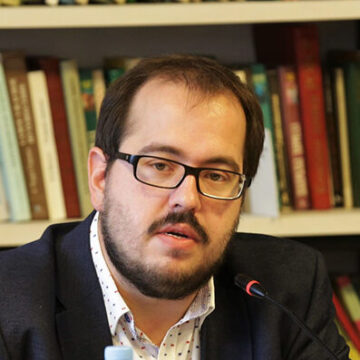Algeria’s octogenarian President Bouteflika has resigned after just shy of two decades in office. On the one hand, he was compelled to leave by unruly street demonstrations, and on the other, he was being pressured by his nation’s army, says Valdai Club expert Vasily Kuznetsov, head of the Centre for Arab and Islamic Studies at the Institute of Oriental Studies of the Russian Academy of Sciences.
The army in Algeria is the main force that makes decisions. It is obvious that before Bouteflika resigned, there was an intense, behind-the-scenes struggle between various “palace” parties, which ended with the victory of the group that represents the interests of the armed forces.
An important event here was the arrest of Ali Haddad, who currently remains in prison. Haddad is close to the president of Algeria and one of the most influential oligarchs in the country.
According to the country’s constitution, the next election must be scheduled within three months. However, so far, there is no understanding of how this will occur.
Another story circulated at the same time as the Bouteflika news, about an attempt to create a transitional body headed by Algeria’s former president Liamine Zéroual. The nation’s former head of intelligence, Colonel-General Mohamed Mediène, issued the proposal in a letter. According to recent reports, Zéroual has rejected the proposal that he lead the country during the transition period.
Army representatives have constantly stressed that the transfer of power should be carried out within the framework of the country’s constitution. However, it is possible to interpret articles 7 and 8 of the constitution in a number of different ways. They state, for example, that the source of power is the people of Algeria. A certain degree of flexibility during a transitional period is quite possible. But it is still unclear how this transition period will look, how the elections will take place, and whether there is a real candidate for the presidential nomination.
We still cannot see a real leader who could serve as an adequate replacement for Bouteflika. The nomination of corps general Ahmed Gaid Salah, chief of staff of the National People’s Army of Algeria, to the presidential post raises serious doubts, since he still leads the armed forces, and this will mean the monopolisation of power in the hands of the army. It is necessary to wait and see how events will develop in the coming days, and what mechanisms for the transfer of power will be created. Obviously, formally everything will remain within the framework of the constitutional process.
Several factions have fought over the fate of Bouteflika. General Ahmed Gaid Salah often issued statements about the events in the country. His first statements were careful. According to him, some “bad” parties are trying to discredit the process and destabilise the situation. Then, against the backdrop of incessant protests, he declared that the people and the army of Algeria are united. In the end, he demanded the immediate resignation of Bouteflika, and the elite circle grouped around him was condemned as a “gang”. But this cannot be considered a fundamental contradiction. For many years, Gaid Salah worked alongside Bouteflika. However, there is a fear that if a sufficiently cardinal decision is not made, then the events may develop according to an uncontrolled scenario.
On the other hand, the army is unhappy that some forces around the president are trying in every way to maintain their power, putting forward various formal reasons for not leaving.
Meanwhile, the population of Algeria continues to celebrate the resignation of Bouteflika. The leaders of the few opposition groups supported the army’s demands for Bouteflika’s immediate resignation. Now the Constitutional Council must approve the resignation of the president and make a statement on the formula for the transition period – how the elections will be organised, whether they are held in three months or later, and who will participate in them.










